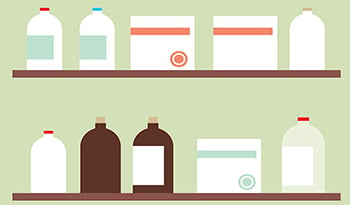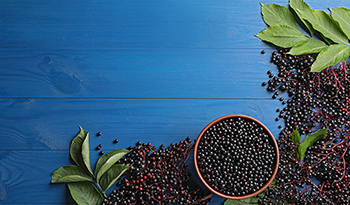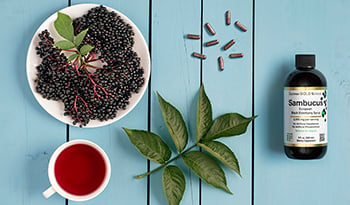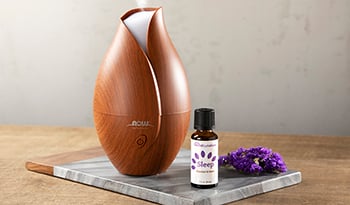9 Ingredients To Look For In An Immunity Supplement
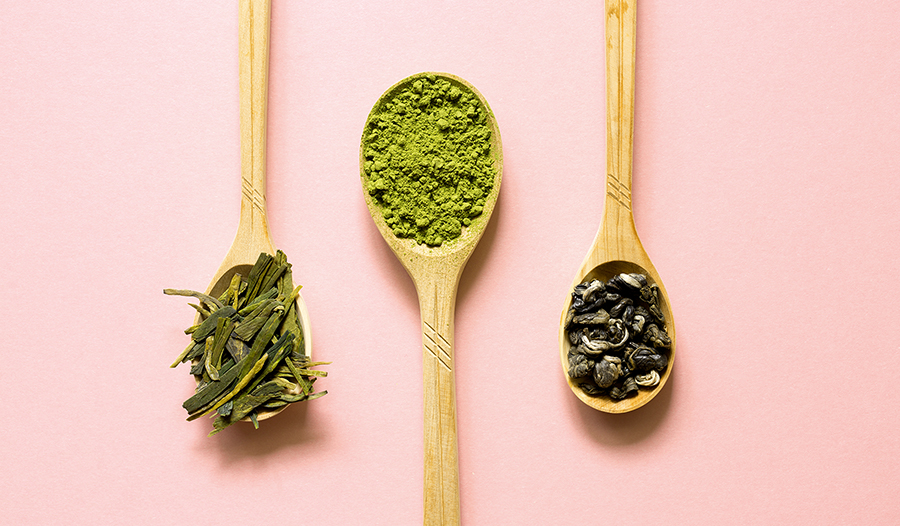
What Does The Immune System Do?
The immune system helps protect us from harmful viruses, bacteria, parasites, and fungi. This sophisticated network of cells, proteins, tissues, and organs acts as a real-time biological surveillance system, continuously differentiating between potentially harmful and non-harmful microorganisms.
Our immune system can be divided into two types — innate and adaptive. The innate immune system has a multitude of functions, but its primary job is to send microbe-fighting immune cells to threatened areas within the body in order to prevent infection. The innate immune system helps to stimulate the second part of immune defense.
The adaptive immune system, also known as the “acquired immune system,” is the basis by which vaccinations protect from infection. In a sense, the adaptive immune system helps provide us with “an advanced warning” of danger lurking around the corner.
Cells from the innate immune system, which are the first line of defense, include the following: basophils, dendritic cells, eosinophils, macrophages, mast cells, neutrophils, and natural killer cells. The cells of the adaptive immune system include B cells and T cells. |
Immunity, Diet, and Lifestyle
Making smart lifestyle choices is crucial for achieving immune support and to maintaining a healthy body that’s better protected from infections.
- A healthy diet (generous serving of fruits, vegetables and grains)
- Adequate sleep (most need 6-8 hours each night)
- Regular activity
- Stress reduction (yoga, meditation, prayer)
- Routine hand washing
The following immunity supplements are supported by scientific studies and show benefit to the immune system.
Larch Arabinogalactan
Larch Arabinogalactan (LA) is sourced from an evergreen tree native to the American Northwest and parts of Canada. A polysaccharide and an excellent source of dietary fiber that is FDA approved, larch increases the production of short-chain fatty acids in the gut, specifically butyrate and propionate. Larch has anti-inflammatory properties and also stimulates natural killer (NK) cells of the immune system.
In each of the following studies, Larch helped the immune system fight off certain infections. A 1999 study in Alternative Medicine Review discussed evidence that larch could stimulate natural NK cells, enhance the immune system, and help control chronic viral infections. A 2010 study in Nutrition Journal evaluated the immune system’s response to certain vaccines when supplemented with larch extract. The double-blind placebo-controlled study included 45 healthy adults — half took larch while the other half took a placebo (sugar pill) before they were given the pneumonia vaccine (pneumococcal 23). Those who were given the Larch showed a stronger immune system compared to those who didn’t take the supplement. A 2013 study also found a similar immune response to the tetanus vaccine.
In addition, a 2013 study evaluated 199 healthy participants who self-reported at least 3 colds in the prior 6 month period. 100 received Larch while 99 were given a placebo. The results showed that those who were given Larch arabinogalactan had less cold infections compared to those who took the placebo. Those who were on the Larch also had a significantly better IgG antibody response suggesting more protection than those who were given the placebo.
Finally, a 2016 study demonstrated that LA could enhance the immune system by positively influencing the gut microbiome, specifically the gut-associated lymphoid tissue (GALT). The study went on to report that LA decreased the incidence of cold episodes by 23%.
Maitake Mushroom (Grifola frondosa)
Grifola frondosa, or maitake mushroom, is a popular edible mushroom. This mushroom contains B-glucans which are the polysaccharide component of mushrooms which are believed to possess health-promoting properties for the person who consumes them.
A 2010 study showed that maitake mushrooms could help enhance white blood cell recovery after chemotherapy.
In addition, a 2015 study showed that maitake mushrooms had beneficial effects on the immune system, specifically neutrophils, and monocytes. Lastly, a 2020 study also showed benefit to the immune system.
Eleuthero Root
Eleuthero Root (Eleuthero senticosus) also known as Siberian Ginseng has been traditionally used in Traditional Chinese Medicine. Eleuthero root is believed to be an immune system booster and a general stimulant. Eleuthero is native to Japan, northern China, southeastern Russia, South Korea, and North Korea.
According to a 2004 study, Eleuthero may have an anti-fatigue effect and may regulate NK activity. Further, a 2020 study showed that Eleuthero could help stimulate the macrophages in the immune system.
Lastly, a 2009 study showed that Eleuthero could also help detox the liver, specifically cadmium. This is beneficial to the immune system overall.
Green Tea Extract
Green tea is one of the most consumed beverages around the world. As a result, thousands of studies have occurred on the health benefits of green tea and green tea extract. The active compounds in green tea are known as catechins, which have antioxidant and anti-inflammatory properties.
A 2018 study in Molecules showed that green tea helps to keep the immune system functioning appropriately, a term scientists call an immune checkpoint inhibitor.
In addition, a 2018 study showed that green tea also had anti-viral properties, specifically against the Human Papilloma Virus- which can cause warts and also increase the risk of cervical cancer.
Lastly, a 2019 study showed that in as little as 7 days, green tea supplementation could help improve the gut microbiome in mice. Green tea is believed to act like a prebiotic substance, which feeds the gut’s healthy bacteria. 70% of the immune system's response occurs in the gut.
Astragalus Extract
Astragalus membranaceus is commonly used in Traditional Chinese Medicine (TCM) as a disease remedy. According to a 2017 study, Astragalus has been shown to help improve the immune system response to vaccination. In addition, another 2017 study also showed similar benefits to the immune system.
Lastly, a 2018 study showed Astragalus is a potent antioxidant and could help reduce inflammation in the gut, which is important for a strong immune response.
Olive Leaf Extract
Many of us are familiar with olive oil and its benefits but have little to no awareness of the powerful benefits of olive leaf extract (OLE). Also referred to as oleuropein, the name of its main component, olive leaf extract is derived from the leaves of the plant that bears olives, a tree called Olea Europaea.
Olive leaf extract has been shown to be safe and has been widely used as traditional medicine in countries such as Greece, Spain, France, Turkey, Israel, Morocco, and Tunisia.
In a study in Current Medical Mycology from 2015, it was found that olive leaf extract exhibited anti-yeast effects against candida albicans. Candida albicans is a pathogenic yeast that is found on the skin and in the human gut.
In a different study, 150 plant extracts, including olive leaf extract, were analyzed for antiviral activity. The findings showed that olive leaf extract also had a strong ability to kill viruses and may be useful in the treatment of infections caused by viruses.
Finally, a 2017 study in the Journal of Food Medicine showed olive leaf extract to have antibacterial properties. Adding this herb to one’s regimen should be considered.
Black Pepper Extract
Black pepper is in everyone’s kitchen cabinet. It is commonly considered the king of spices. Studies show pepper may be beneficial to the immune system.
A 2015 study showed that black pepper extract could help regulate the T cells of the immune system.
In addition, a 2017 study discussed the anti-bacterial and anti-inflammatory properties of black pepper. The study also went on to show that black pepper extract also has anti-asthma properties.
Ginger Root Extract
The scientific name for ginger is Zingiber officinale, while its roots are known as Rhyzomus zingiberus. Ginger is a flowering plant originally from Southeast Asia, but its thick roots have been also used in traditional medical practices of China, India, Polynesia, and Africa.
In the fields of Ayurvedic medicine and Traditional Chinese Medicine (TCM), ginger is well regarded for its properties.
Ginger may be helpful when treating viral gastroenteritis, commonly known as a “stomach flu”. An Italian gastroenterologist named Dr. Canani published an article in 2018 showing that ginger administered to an afflicted pediatric population reduced vomiting episodes by 20 percent and overall number of sick days from school by 28 percent. In traditional medicine, ginger is highly respected as a treatment for viral upper-respiratory infections.
Additionally, ginger has been shown to have “anticholinergic activity” on the respiratory tract, which helps reduce chest congestion and cough symptoms when an infection is present. Therefore, ginger is an excellent option to help treat the symptoms of respiratory infections, including wheezing. Ginger is also available as ginger tea.
Long Pepper Fruit (Piper longum)
Long Pepper Fruit was traditionally used in Ayurvedic medicine. Although, it was also discussed by Hippocrates, who is considered the founder of modern-day medicine. However, in addition to its medicinal use, it was also used as a food spice.
A 2001 study showed that Piper longum had antibacterial properties.
In addition, a 1999 study also showed that Piper longum has strengthened the immune system and helped fight off Giardia infections.
Immune Support by Zoi Research provides all the above-listed immunity supplements herbs and is commonly taken in a dose of two capsules per day.
References:
- Larch arabinogalactan. Alternative Med Rev. 2000;5(5):463‐466.
- Kelly GS. Larch arabinogalactan: clinical relevance of a novel immune-enhancing polysaccharide. Altern Med Rev. 1999;4(2):96‐103.
- Udani JK, Singh BB, Barrett ML, Singh VJ. Proprietary arabinogalactan extract increases antibody response to the pneumonia vaccine: a randomized, double-blind, placebo-controlled, pilot study in healthy volunteers. Nutr J. 2010;9:32. Published 2010 Aug 26. doi:10.1186/1475-2891-9-32
- Udani JK. Immunomodulatory effects of ResistAid™: A randomized, double-blind, placebo-controlled, multidose study. J Am Coll Nutr. 2013;32(5):331‐338. doi:10.1080/07315724.2013.839907
- Riede L, Grube B, Gruenwald J. Larch arabinogalactan effects on reducing incidence of upper respiratory infections. Curr Med Res Opin. 2013;29(3):251‐258. doi:10.1185/03007995.2013.765837
- Dion C, Chappuis E, Ripoll C. Does larch arabinogalactan enhance immune function? A review of mechanistic and clinical trials. Nutr Metab (Lond). 2016;13:28. Published 2016 Apr 12. doi:10.1186/s12986-016-0086-x
- Lin H, de Stanchina E, Zhou XK, et al. Maitake beta-glucan promotes recovery of leukocytes and myeloid cell function in peripheral blood from paclitaxel hematotoxicity. Cancer Immunol Immunother. 2010;59(6):885‐897. doi:10.1007/s00262-009-0815-3
- Wesa KM, Cunningham-Rundles S, Klimek VM, et al. Maitake mushroom extract in myelodysplastic syndromes (MDS): a phase II study. Cancer Immunol Immunother. 2015;64(2):237‐247. doi:10.1007/s00262-014-1628-6
- Int J Biol Macromol. 2020 Mar 15;147:79-88. doi: 10.1016/j.ijbiomac.2020.01.062. Epub 2020 Jan 8.
- J Ethnopharmacol. 2004 Dec;95(2-3):447-53.
- Phytomedicine. 2020 Mar;68:153181. doi: 10.1016/j.phymed.2020.153181. Epub 2020 Feb 6.
- Ann N Y Acad Sci. 2009 Aug;1171:314-20. doi: 10.1111/j.1749-6632.2009.04678.x.
- Rawangkan A, Wongsirisin P, Namiki K, et al. Green Tea Catechin Is an Alternative Immune Checkpoint Inhibitor that Inhibits PD-L1 Expression and Lung Tumor Growth. Molecules. 2018;23(8):2071. Published 2018 Aug 18. doi:10.3390/molecules23082071
- Case Report of a Human Papillomavirus Infection Treated with Green Tea Extract and Curcumin Vaginal Compounded Medications. Int J Pharm Compd. 2018;22(3):196‐202.
- Seven-day Green Tea Supplementation Revamps Gut Microbiome and Caecum/Skin Metabolome in Mice from Stress. Sci Rep. 2019;9(1):18418. Published 2019 Dec 5. doi:10.1038/s41598-019-54808-5
- Zhang P, Wang J, Wang W, et al. Astragalus polysaccharides enhance the immune response to avian infectious bronchitis virus vaccination in chickens. Microb Pathog. 2017;111:81‐85. doi:10.1016/j.micpath.2017.08.023
- Scientific Reports 2017 Mar 17;7:44822. doi: 10.1038/srep44822.
- International Journal of Mol Sci 2018 Mar 10;19(3):800. doi: 10.3390/ijms19030800.
- Nasrollahi Z, Abolhasannezhad M. Evaluation of the antifungal activity of olive leaf aqueous extracts against Candida albicans PTCC-5027. Current Medical Mycology. 2015;1(4):37-39.
- Knipping, Karen, Johan Garssen, and Belinda van’t Land. “An Evaluation of the Inhibitory Effects against Rotavirus Infection of Edible Plant Extracts.” Virology Journal 9 (2012): 137. PMC. Web. 17 Dec. 2017.
- Qabaha Khaled, AL-Rimawi Fuad, Qasem Ahmad, and Naser Saleh A.. Journal of Medicinal Food. November 2017, ahead of print. https://doi.org/10.1089/jmf.2017.0070
- Doucette CD, Rodgers G, Liwski RS, Hoskin DW. Piperine from black pepper inhibits activation-induced proliferation and effector function of T lymphocytes. J Cell Biochem. 2015;116(11):2577‐2588. doi:10.1002/jcb.25202
- Bui TT, Piao CH, Song CH, Shin HS, Shon DH, Chai OH. Piper nigrum extract ameliorated allergic inflammation through inhibiting Th2/Th17 responses and mast cells activation. Cell Immunol. 2017;322:64‐73. doi:10.1016/j.cellimm.2017.10.005
- Mbaveng, A.t., and V. Kuete. “Zingiber Officinale.” Medicinal Spices and Vegetables from Africa, 2017, pp. 627–639., doi:10.1016/b978-0-12-809286-6.00030-3.
- Berni Canani, R. Therapeutic efficacy of ginger on vomiting in children affected by acute gastroenteritis. Presented at the Annual Meeting of the European Society for Paediatric Gastroenterology, Hepatology and Nutrition. Geneva, Switzerland, 11 May 2018
- Townsend, Elizabeth A et al. “Effects of ginger and its constituents on airway smooth muscle relaxation and calcium regulation” American journal of respiratory cell and molecular biology vol. 48,2 (2013): 157-63
- Reddy Srinivasa P, Kaiser Jamil, Madhusudhan P, Anjali G and Das B, Antibacterial activity of isolates from Piper longum and Taxus baccata, Pharm Biol, 2001, 39(3), 236-238
- Tripathi DM, Gupta N, Lakshmi V, Saxena KC and Agrawal AK, Antigiardial and immunostimulatory effect of Piper longum on giardiasis due to Giardia lamblia, Phytother Res, 1999, 13(7), 561-565
DISCLAIMER:This Wellness Hub does not intend to provide diagnosis...
















































































 Table of Contents
Table of Contents









